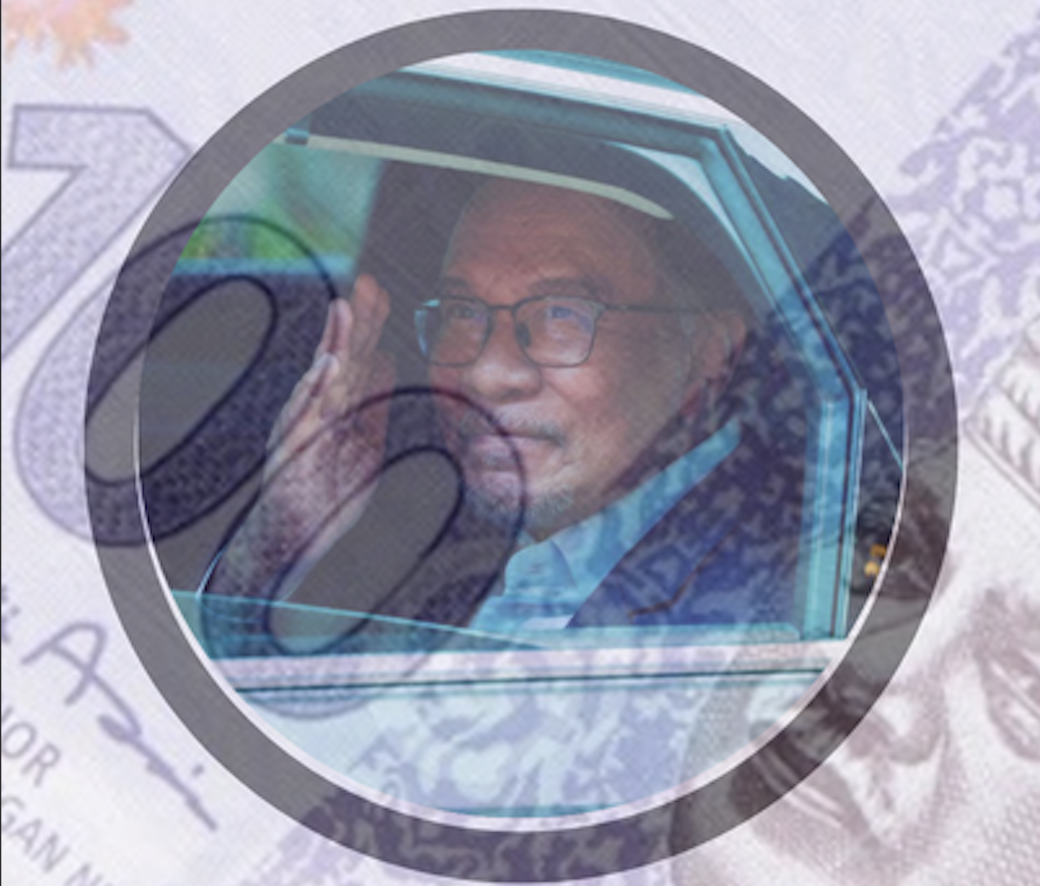Is Anwar's Anti-Corruption Battle Threatened by A Plummeting Ringgit
Anwar's central political and economic agenda centers on combating corruption. But, discontent brews among the populace due to a weakening ringgit and soaring living costs

In Malaysia, the battle against corruption has become a rallying cry, with even Friday prayer speeches dedicated to the issue. Led by Prime Minister Anwar Ibrahim, the regime emphasizes the significance of the anti-corruption stance, a rare one among emerging nations.
Unlike Singapore, Malaysia still has a journey ahead to fully integrate anti-corruption measures into its system and society. Unfortunately, Anwar bears the brunt of this struggle.
Anwar's regime faces fierce condemnation for its economic decisions. Despite criticism, Anwar and his allies staunchly defend their strategy, envisioning long-term economic revitalization.

However, the absence of a short-term plan fuels discontent among critics and leaves the populace yearning for immediate solutions to pressing issues unresolved by the Pakatan Harapan regime.
A critical juncture
Malaysia's economy stands at a critical juncture, grappling with a weakened ringgit and dismal export figures, posing a threat to its growth trajectory. Although prices of certain goods are on the rise, essential items like chicken, eggs, oil, and flour have stabilized.
Despite these challenges, inflation is expected to remain manageable in Malaysia this year. The discontent is mounting among those at the lower end of the socioeconomic spectrum, who lament the declining standard of living.
Simultaneously, the middle class is reeling from new taxes or heightened service tax rates, perceived as further straining their spending power. They are complaining that their purchasing power is at risk with these new taxes and the high cost of living.
Critics remain steadfast in their belief that the government has not revealed a coherent strategy, accusing Anwar of lacking a clear plan to address the economic challenges or of failing to take meaningful action to steer the country out of its apparent stagnation.
Glimmer of hope
Despite scepticism, a glimmer of hope emerged: opposition attacks dwindled as Anwar's year-long tenure defied Perikatan Nasional's agenda. Bersatu's MP backing for Anwar has fractured opposition unity, straining relations between Bersatu and PAS. These are positive elements that are assuring stability in the country on the political lines.
Then came Anwar's statement on the influx of foreign direct investment in the country. In 2023, Malaysia achieved a historic high in approved investments, totaling RM329.5 billion, marking a significant 23% increase from 2022.
Anwar Ibrahim announced that foreign investments accounted for 57.2%, surpassing domestic investments at 42.8%.
This remarkable performance, discussed during the National Investment Council Meeting (MPN) No. 2/2024, saw a notable 35.1% rise in domestic investments and a 15.3% increase in foreign investments. Anwar Ibrahim emphasized the positive impact of this achievement, reflecting robust confidence in Malaysia's economic prospects.
Malaysia's achievement of a historic high in approved investments signifies a robust influx of capital into the country's economy. The substantial increase of 23% from the previous year indicates growing confidence from investors, both domestic and foreign.
The dominance of foreign investments, accounting for 57.2%, suggests Malaysia's attractiveness to international capital and potential for economic expansion through foreign participation.
This influx of investments can stimulate economic growth, create job opportunities, spur innovation, and enhance the country's competitiveness on the global stage.
Fighting Corruption
While Anwar's policies have so far been successful in containing inflation and bringing record investments into the country in 2023, are these sufficient to contain a dwindling ringgit and the negative perception that his government is doing too little or nothing to fix the economy?
Anwar's core political and economic agenda revolves around combating corruption. Yet, rallying public support for necessary sacrifices proves challenging as his government confronts entrenched economic elites.
Former PM Najib Razak's case exemplifies the challenge Anwar faces in dismantling monopolistic cartels, bastions of corruption entrenched in Malaysia's economic landscape.
The big question is can Anwar survive the battle against corruption that he started in 1997? In that year, the Parliament passed the Anti-Corruption Act 1997 to empower the role of the Anti-Corruption Agency as the nation's anti-corruption enforcement agency. A year later, Anwar was fired as Finance Minister and landed in jail.
That was the starting point of his political misfortunes that kept him away from power for 25 years! Now he is back.




